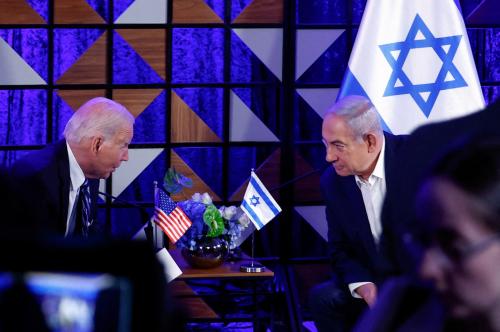Now that the House has passed its own airport-security bill, the stage is set for a showdown with the Senate over who gets the 28,000 jobs. The Senate wants federal employees at the baggage machines, while the House wants private contractors.
President Bush also favors private contractors. Only days after he expressed his appreciation to federal employees for “your dedication and integrity, your commitment to excellence and your love of our country,” Bush was lobbying hard to prevent passage of a measure that would have set up a new federal workforce of airport screeners. The Bush administration, facing a civil-service system that is slow on the hiring, weak on the firing, poor on the training and sluggish on the disciplining, believes there is no other choice. As Bush has explained, the House bill provides the “quickest, most effective way to increase aviation security,” particularly by ensuring “that security managers can move aggressively to discipline or fire employees who fail to live up to the rigorous new standards.”
Bush’s support for a contract workforce crystallizes the problems facing the federal civil service. On the one hand, federal employees would almost certainly do a better job at airport security. According to recent surveys of federal and private employees by the Brookings Institution’s Center for Public Service, a federal security service would be motivated more by the job’s challenge and the public good, and less by pay. Federal employees would be more satisfied with benefits and job security, and therefore less likely to leave.
On the other hand, federal workers would be less likely than private employees to get the tools, training and technologies to do their jobs well. They would be hampered by a disciplinary process that their peers believe does little to address poor performance, and would join a workforce that is under-resourced, over-reformed and generally demoralized by a half-century of pay and hiring freezes.
New employees would be joining a federal workforce that is under duress. Three out of five federal workers told the Brookings center that their organizations only sometimes or rarely have the staff needed to perform well. Many believe the past few years of reinventing government made their jobs harder. And the vast majority say the federal hiring system is slow and confusing; a quarter refuse to call it fair.
The question is not whether federal employees often succeed against the odds; they do. Rather, the question is whether the federal government can find a private workforce that can outperform federal employees on anything other than fast hiring and firing.
The answer is mixed at best.
Private airport-security contractors can hire quickly, but they’re poor at retaining. From 1998 to 1999, turnover among private contractors at the 19 largest U.S. airports averaged 126%, topped 200% at five and hit 416% at Lambert-St. Louis International.
Private contractors also have trouble complying with existing regulations. Just last year, one of the largest contractors, Argenbright Security, was fined more than $1 million for assigning new employees to its screening checkpoints in Philadelphia without background checks or an audit system to detect what the U.S. attorney’s office called “the astonishing and widespread criminal activities that occurred in this case.”
In the best of all worlds, private contractors would hire and supervise federal employees, avoiding an awful civil-service hiring and firing system that hasn’t been reformed in decades. But given a choice between the two workforces, federal employees should get the job. No matter how stringent the oversight, airport security is too important to consign to the lowest bidder. That is how the security function fell into disrepair in the first place.
Paul C. Light is Vice President and Director of Governmental Studies at the Brookings Institution and Senior Adviser to The Presidential Appointee Initiative.



Commentary
Op-edWhy Rely on Low-Bid Airport Safety?
November 5, 2001